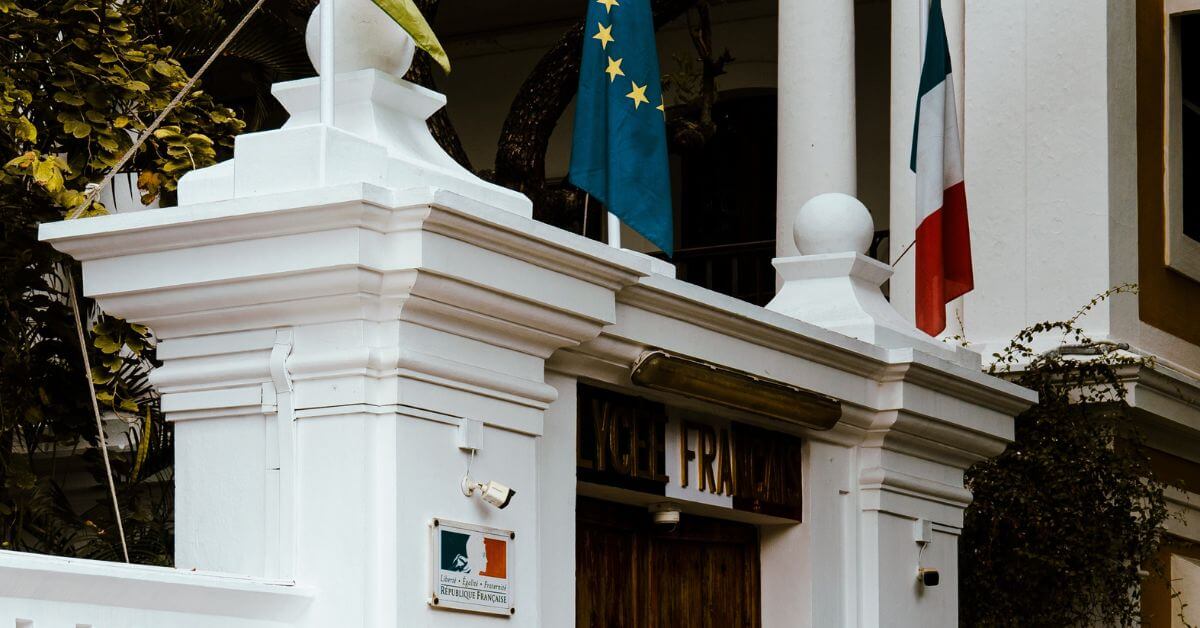Nigeria’s capital, Abuja, is a center for political and administrative activity as well as a hive of international interactions.
Abuja serves as a reminder of the value of diplomacy and international cooperation with its abundance of diplomatic missions representing nations from all over the world.
The significance, roles, and complicated web that diplomatic missions in Abuja create in the sphere of international relations will all be explored in this blog post.
Overview of Diplomatic MissionsOverview of Diplomatic Missions
The official means through which nations create and uphold mutual understanding, cooperation, and communication are diplomatic missions.
These missions, which include embassies and consulates, are essential for promoting international trade, diplomacy, and other types of exchange.
These missions, which include embassies and consulates, are essential for promoting international trade, diplomacy, and other types of exchange.
Abuja’s Diplomatic Environment
With embassies and high commissioners tucked away within its diplomatic enclave, Abuja is home to a wide variety of diplomatic missions.
This enclave serves as a visible example of global participation because of its lavish construction and advantageous location.
These missions, which represent nations from all over the world, add to the city’s sense of globalization.
Diplomatic missions’ function
- Promoting Bilateral ties:
By serving as a bridge between the sending and receiving nations, diplomatic missions help to advance bilateral ties and international cooperation on a variety of fronts.
- Consular Services:
Embassies and consulates offer a variety of services to their nationals, such as granting passports and visas and offering crisis assistance.
Programs, exhibitions, and events that advance cultural awareness and understanding are made possible through these missions.
- Economic diplomacy:
Diplomatic missions are essential for fostering international trade, investment, and economic cooperation.
- Political Dialogue:
In order to address common problems and advance amicable solutions, ambassadors and diplomats have political discussions with their hosts’ governments.
The Particular Difficulties of Diplomatic Life
Working abroad presents unique difficulties.
In addition to adjusting to a new culture and negotiating the complexities of international politics, diplomats frequently have to promote the interests of their nation.
The demands of diplomacy call for deft negotiating, efficient communication, and a thorough knowledge of regional cultures.
The Society of Abuja and the Diplomatic Community
The presence of diplomatic posts adds to Abuja’s diverse cultural landscape.
The city’s fabric is woven by ambassadors, diplomats, and their families as they take part in cultural activities, make friends, and leave a lasting impression on the neighborhood.
Distinguished diplomatic missions in Abuja
The diplomatic environment of Abuja is home to a number of high commissions and embassies.
The American Embassy, the British High Commission, the Chinese Embassy, and the French Embassy are a few of the important ones.
Along with serving as ambassadors for their countries, these missions promote cooperation and understanding among people.
Prospects for Diplomatic Relations
Diplomatic missions in Abuja will be crucial in resolving world issues, fostering international cooperation, and bolstering diplomatic ties as the globe continues to change.
In order to solve urgent challenges like climate change, security, and economic development, there must be strong and successful diplomatic initiatives.
Addressing Common Questions About Diplomatic Missions in Abuja
- What function does an ambassador perform in a diplomatic mission?
The highest-ranking diplomatic representative of a nation stationed abroad is an ambassador.
They are in charge of advocating their nation’s interests, participating in political discourse, fostering bilateral ties, and promoting collaboration in a variety of areas, including trade, culture, and security.
- How do diplomatic missions in Abuja become started?
Countries enter into bilateral arrangements to establish diplomatic missions.
Foreign nations may establish embassies, consulates, or other diplomatic offices on the territory of host nations like Nigeria.
These missions must adhere to both diplomatic conventions and international law.
- What privileges and immunity are accorded to diplomats?
The Vienna Convention on Diplomatic Relations grants several privileges and immunities to diplomats.
These include the inviolability of their diplomatic facilities, arrest immunity, and exemption from some taxes.
These benefits are designed to give diplomats the freedom to conduct diplomatic business without hindrance.
- In what ways do diplomatic missions promote cross-cultural understanding?
Cultural gatherings, exhibitions, performances, and seminars that highlight the traditions, arts, and heritage of their nation are organized by diplomatic missions.
These occasions give locals the chance to gain knowledge of other cultures, promoting respect and understanding between people from other civilizations.
Conclusion
The diplomatic embassies in Abuja act as vital links between nations, building alliances that advance world harmony, collaboration, and understanding.
Their job encompasses cultural exchanges, business alliances, and humanitarian endeavors in addition to political negotiations.
When we consider the importance of these diplomatic missions, we see the complex web of connections that they create to influence how the globe will develop in the future.
The diplomatic community in Abuja serves as a ray of light in a world where diplomacy is crucial, encouraging cooperation and unification on a global scale.
Their presence improves the city’s vitality and the quality of life for its citizens while also influencing how international ties develop.





